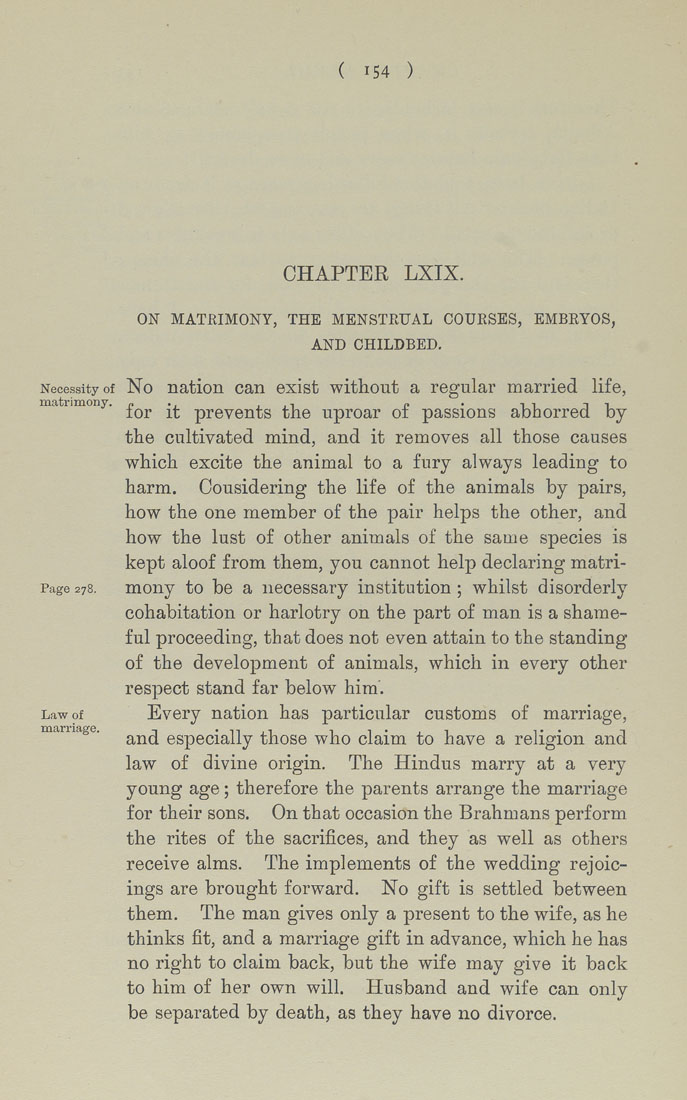Bīrūnī, Muḥammad ibn Aḥmad, Alberuni's India (v. 2)
(London : Kegan Paul, Trench, Trübner & Co., 1910.)
|
||
|
|
|
|
| Page 154 |

( 154 ) CHAPTER LXIX. ON MATRIMONY, THE MENSTRUAL COURSES, EMBRYOS, AND CHILDBED. Necessity of No uatiou cau cxist without a regular married life, ma rimony. ^^^ ^^ prevcuts the uproar of passions abhorred by the cultivated mind, and it removes all those causes which excite the animal to a fury always leading to harm. Considering the life of the animals by pairs, how the one member of the pair helps the other, and how the lust of other animals of the same species is kept aloof from them, you cannot help declaring matri- Page 278. mony to be a necessary institution ; whilst disorderly cohabitation or harlotry on the part of man is a shame¬ ful proceeding, that does not even attain to the standing of the development of animals, which in every other respect stand far below him'. Law of Every nation has particular customs of marriage, and especially those who claim to have a religion and law of divine origin. The Hindus marry at a very young age; therefore the parents arrange the marriage for their sons. On that occasion the Brahmans perform the rites of the sacrifices, and they as well as others receive alms. The implements of the wedding rejoic¬ ings are brought forward. No gift is settled between them. The man gives only a present to the wife, as he thinks fit, and a marriage gift in advance, which he has no right to claim back, but the wife may give it back to him of her own will. Husband and wife can only be separated by death, as they have no divorce. marriage. |
| Page 154 |







